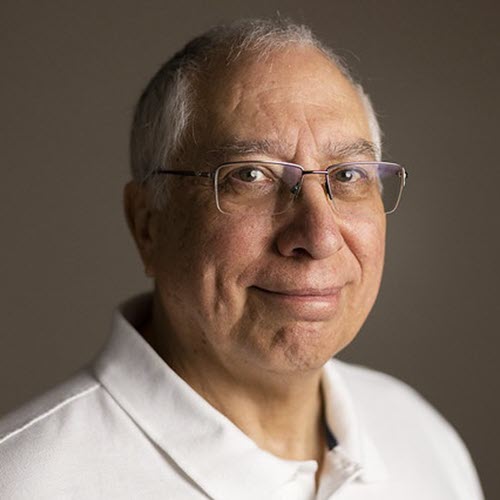Making your Will is a wise and sensible step. Without a Will the savings, investments, and other property you leave must be distributed according to law, a necessarily rigid and impersonal procedure. No matter how strong your feelings about which people and organizations you wish to benefit from your estate, your wishes cannot be honored unless you make a Will.
This Guide offers practical thoughts on planning. It is not a guide to writing a Will. That is a job you should entrust to an attorney who is familiar with laws and procedures in the state where you live. Don’t try to draft your own Will and don’t copy someone else’s. Errors in the wording or execution of even the simplest Will could have expensive consequences for your heirs.
How to use this Guide to your best advantage
Before you jot down any information, look through the following pages to get the general “lay of the land”. This quick survey will prepare you to think about your Will in an organized way. After a preliminary run-through, return to the beginning and start making notes of what you own and how you wish to leave it, beginning with the basic information called for on the next two pages.
a
1. Estate Information
Assets Value – Bank accounts $ – Money owed to you – Personal property – Your home – Other real estate – Stocks – Bonds – Mutual funds – Other investments – Equity interest in your own business – Individual life insurance – Group life insurance – Individual Retirement Accounts – Death benefits from pension or profit-sharing plans
Assets – Total Value $
Liabilities Value
Mortgages Auto loans Personal loans Other
Liabilities – Total Value $
Total value of your estate $ (Assets less liabilities)
2. Other Information
Family Names and ages of family members and their relationship to you:
Special circumstances Does any member of the family require special care because of poor health? Are you expecting to receive an inheritance. . . or sell a business . . or retire in the near future?
What a Will does and does not control Your estate, generally speaking, consists of everything you own. However, certain types of property are not usually governed by the terms of a Will. Please Note – Life insurance, death benefits from pension plans and funds that have accumulated in Individual Retirement Accounts or other retirement plans generally pass directly to named beneficiaries. Real estate and any other property held in joint names with right of survivorship normally passes directly to the surviving owner. Although your Will does not control these elements of your estate, you will want to keep in mind the amount of such property and who will get it as you consider the way you wish to divide the rest of your estate.
3. Planning your will
In your Will you can leave specific items to specific beneficiaries. You can make cash gifts. You can leave certain beneficiaries a life income. Finally, you can designate certain people or organizations to receive shares of your “residuary estate”. This term, as used in estate planning, simply means everything your Will has not otherwise disposed of. Certainly the overall plan of your Will should be uniquely yours, reflecting your own hopes and concerns for those whom you wish to benefit. Never-the-less, one practical point is worth remembering. In our modern era, market values of securities and other property often fluctuate rapidly. And so, while you can estimate the size of your estate today, it is far harder to guess what its size might be in the future. You might leave much more – or less – than now seems likely. For this reason, you may wish to make major gifts in the form of shares or percentages of your residuary estate. Personal effects Home furnishings, jewelry, hobby equipment, automobiles, and other articles of personal use are usually left outright to particular members of the family, or to friends. If you don’t say who is to get such items, they become part of your residuary estate. Cash gifts Wills often contain bequests of stated amounts of money to specified individuals or charities. However, there’s a risk that the overall results of a Will could be distorted if the Will contains a high volume of cash bequests and the estate proves smaller than anticipated. As already mentioned, bequests that are large in proportion to the value of what you now own might better be made as shares of your residuary estate. Gifts of income You may wish to leave a relative or friend a life income rather than a lump sum of money. Your Will can accomplish this by placing money, securities or other income-producing property in trust for that person’s life benefit. Your Will also may say who is to receive the trust fund at the death of the income beneficiary; his or her children, perhaps. In the event an income beneficiary leaves no children, you may wish to name a charity to receive the fund. Home & Other Real Estate Real estate may be left to one or more beneficiaries outright or placed in trust for their benefit. Or you may direct your executor to sell real estate and add the proceeds to your residuary estate. Note: A surviving husband or wife usually has certain legal rights regarding the family home. Your attorney can explain them. Your Business If you own all or part of a business, do you wish your interest sold, or do you wish to leave it to a son, daughter or other relative? As you note your preference, be forewarned that special planning may be needed to carry out your intentions. If the business interest is to be sold at a fair price, you may want to establish a formal agreement with other partners or stockholders, or with key employees. If the business interest is to stay in the family, you should make plans for adequate successor management and examine the impact that taxes could have upon your estate. Your Residuary Estate As earlier mentioned, your residuary estate will consist of everything not otherwise disposed of. You may name one or more beneficiaries to share in your residuary estate. Their shares may be left outright or in trust, and may be equal or unequal. For example, a hypothetical Will might divide the residuary estate into twelve shares, leaving four to a sister, two to a niece, two to a nephew, one share to an old friend, and the three remaining shares to one or more charities. As you make note of your intentions, also consider to whom each individual beneficiary’s shares should go if that beneficiary should fail to survive you. Gifts to Young Children When a Will leaves sizable sums outright to minor children, a guardian must be appointed to manage the child’s inheritance until he or she comes of age. Because of the rigid requirements that many jurisdictions still impose on guardians, this can be an expensive and burdensome procedure. Such complications can be eliminated by leaving a minor’s share of your estate in trust and instructing the trustee to administer the inheritance and use it for the child’s education and support. Funds not needed can be turned over to the beneficiary at 21, or at a later age specified in your Will.
4. Your Will
Where to keep your Will Once your Will is prepared by your attorney and properly signed and witnessed, it should be kept in a safe place. But not in a place so safe that the Will is never found! Keep the Will in your safe deposit box? That’s a common solution. However, in some states safe deposit boxes are sealed at death, pending certain tax formalities, and the Will is not immediately available. For this reason some married couples keep the wife’s Will in the husband’s safe deposit box, and his Will in hers. The best solution, usually, is to leave the signed Will with one’s attorney, or with the bank or trust company named as executor. Keep an unsigned copy at home for reference if you wish. One final fact about Wills You can change your Will whenever you wish. Indeed, you should resolve to review the Will from time to time and have it updated as necessary. Major changes in either your family circumstances or the size and nature of your estate may make revisions advisable. Some people put off making a Will because they’re waiting for life to settle down. It never does! They look forward to a time free of unresolved family concerns, pending business decisions, and so on. Unfortunately, such a time rarely arrives, and the Will is never made. As a practical matter, the best possible time to take care of your Will is now. Do the best job you can, secure in the knowledge that additions or revisions can be made in years to come. Careful estate planning can successfully achieve both family and philanthropic objectives with significant tax savings.
Questions?
Please contact us

Jeeva Abbate
Fundraising Team Coordinator
Board of Trustees Member
Satchidananda Ashram–Yogaville
703-626-6385

Mitra Somerville
Fundraising Team Member
Ashram Reservations Manager
Satchidananda Ashram–Yogaville
808-594-9051
